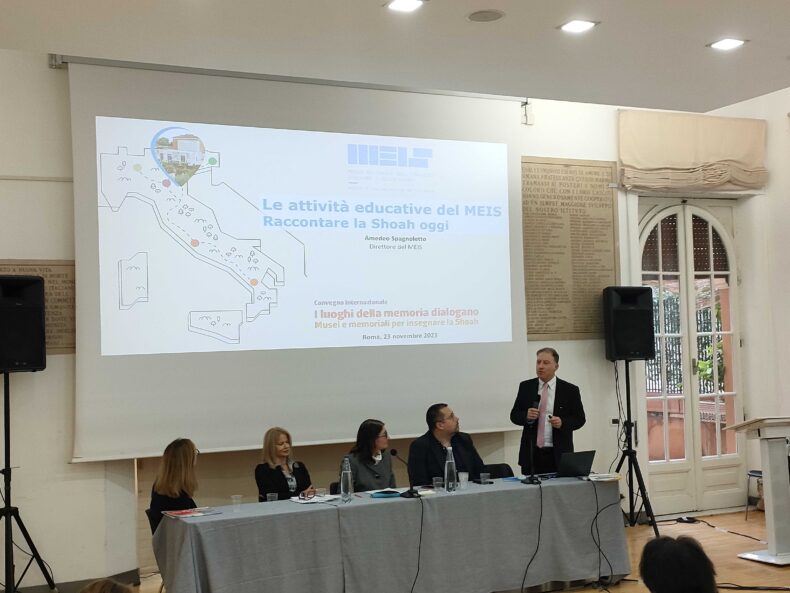Noemi Di Segni (UCEI): A new challenge comes through October 7

Representatives of Holocaust museums and memorials in Italy actively participated to the international convention in Rome called “I luoghi della memoria dialogano. Musei e memoriali per insegnare la Shoah” (The places of remembrance converse. Museums and memorials to teach the Shoah). It is an initiative aimed at “the inter-institutional promotion of prevention and effective countering of distortions, reductionism and denialism,” shared by the promoters of the newly-founded Italian network of places of remembrance: the Civic Museum of the “Risiera di San Sabba” in Trieste, the “Memoriale della Shoah” in Milan, the Museum of Italian Judaism and the Shoah (MEIS) in Ferrara, the Fossoli Foundation in Carpi, the Shoah Museum Foundation of Rome and the “Museo Internazionale della Memoria Ferramonti di Tarsia” in the Calabria region.
The initiative, aimed especially at teachers, focuses on the presentation of these six museums and memorials and the education they provide, with also an international look at the activities of the International Holocaust Remembrance Alliance and of the new Warsaw Ghetto Museum. “This is the first time we are all meeting together. There is a pressing need for discussion, particularly in light of what is currently happening,” started off Amedeo Spagnoletto, director of the MEIS.
Remembrance “is based on conceptual content, but it is also about physicality,” stressed UCEI president Noemi Di Segni, emphasizing the value of the network. Hence “the need to see with one’s own eyes what happened: a Remembrance of the places.” According to Di Segni, in the near future “it will not be possible to talk about Remembrance without thinking about what happened on October 7, about this new massacre.” In agreement is Mario Venezia, the president of the Shoah Museum Foundation of Rome, who also stated some key principles for the proper transmission of Remembrance: “Rigorous scientific study, faithful reconstruction of the facts, projection into the present and the future.” It is a relevant topic for the Italian Ministry of Education as well, assured political advisor Vincenzo Mannino bringing greetings from minister Giuseppe Valditara.
Networking “is the way of the future,” said Simonetta Della Seta, president of the IHRA Memorials and Museums Working Group. “Joint action is urgently needed. The network is being launched at the right time.” Teachers are being called “to be accurate,” but also to “broaden the context, therefore trying to understand and make people understand who Jews are and that there is a Jewish life before, during and after the Shoah.”
Translated by Klara Mattiussi, revised by Annadora Zuanel, students at the Secondary School of Modern Languages for Interpreters and Translators of the University of Trieste, interns at the newspaper office of the Union of the Italian Jewish Communities – Pagine Ebraiche.
